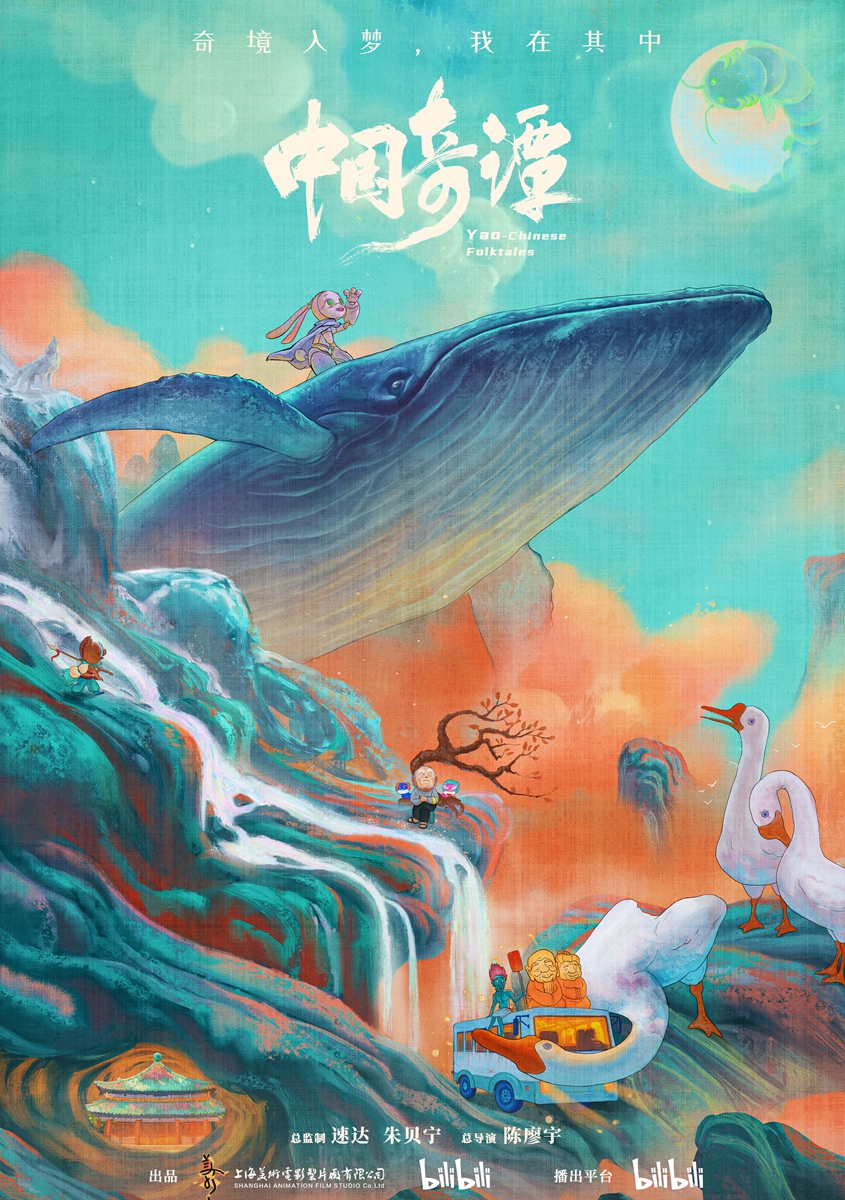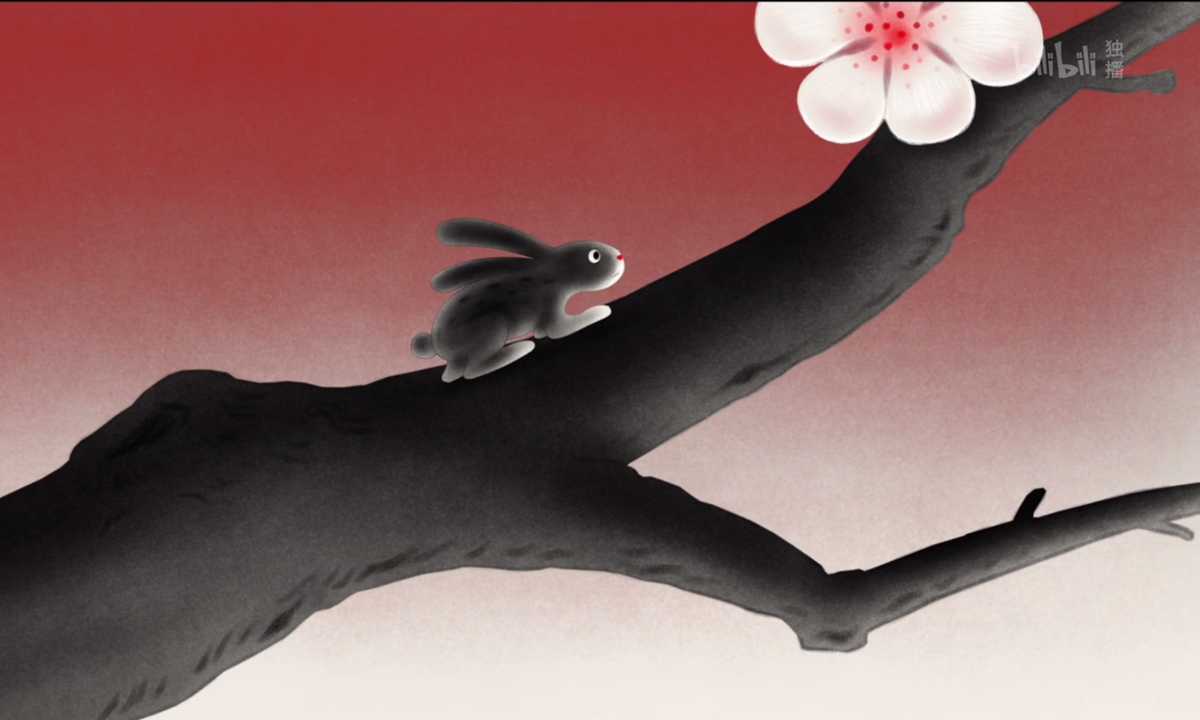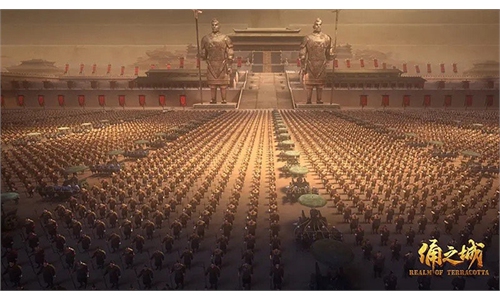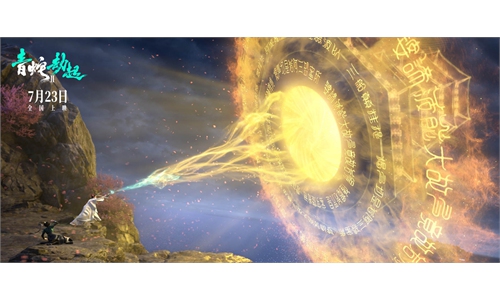ARTS / CULTURE & LEISURE
Innovative animated series empowers Chinese tradition
A classic reborn

Promotional material for Yao-Chinese Folktales Photo: Courtesy of Bilibili
A new Chinese animated folktale series earned more than 10 million views during the first three days of January 2023, becoming the newest big hit. Experts and critics are calling Yao-Chinese Folktales, which debuted on January 1 on Chinese streaming platform Bilibili, a classic reborn, while noting that excellent works based on the essence of Chinese culture will always be able to find an audience and perform well in the market. The show currently holds an average rating of 9.6/10 on Chinese review platform Douban from more than 60,000 reviews.Co-produced by the Shanghai Animation Film Studio and Shanghai Kuanyu Digital Technology, Yao-Chinese Folktales presents new interpretations of yao, demons or monsters in Chinese folklore, in eight stories ranging from 15 to 25 minutes in length.
All the stories are inspired by classic Chinese literature works that are deeply rooted in the hearts and memories of the Chinese people. Yet the themes vary, ranging from childhood terror to changes in the relationship between humans and natures, and even reaching outer space.
Modern commentary
"This case is a meaningful and successful trial of the combination of traditional content producer and modern streaming platform. The series does an excellent job of presenting Chinese-style imagination and Eastern aesthetic spirit," Zhang Yiwu, a professor at Peking University, told the Global Times on Saturday.
"We still need to see if this type of storytelling can be accepted by overseas audiences, but the series should be internationally competitive as it illustrates the essence of Chinese culture very well."
Based on the famous novel Journey to the West, the first 22-minute episode Nobody follows a low-ranking pig demon as he prepares to kill a monk and his disciples, the main characters from the book, on orders from the Wolf King and his bear supervisor.
The pig demon is a close friend of a crow demon. The duo are often ignored and their dignity trampled on by their bosses. In the end, the crow loses his life after he creatively uses his own feathers to manufacture better-quality arrows, which the boss doesn't appreciate and regards as a challenge to his authority. Realizing that the monk represents greatness and justice while the demons stand on the opposite side, the pig demon decides to stand on the side of what is right.
Chinese netizens gave Nobody overwhelming praise, saying the producers have injected new vitality into traditional Chinese classics through creativity and that they are eagerly waiting for the next episode of the series.
"I won't let my friends miss this excellent work; it's China's pride," a 33-year-old Shanghai white-collar worker told the Global Times.
"It is the mission of Chinese cultural enterprises to use good Chinese stories to more vividly and profoundly explain issues of common concern for mankind, and to focus on building appealing and influential Chinese cultural soft power," Li Zao, the chief producer of the series, told the Global Times.
Many reviewers noted how the first episode acts like a commentary on modern life, saying the life of the pig is a portrayal of low-ranking office workers who are struggling to make ends meet but never give up pursuing what is good, true and beautiful in life.
The second episode, the 17-minute Goose Mountain, sparked a huge amount of discussion and speculation, as it tells a very fantastical story. Based on China's mythological collection, Xu Qi Xie Ji by Liang Wujun of the Southern Dynasties (420-589), the episode has been praised for its visual spectacle and expressive Chinese style, fully demonstrating the beauty of mysterious romance and Chinese aesthetics. The episode's director Hu Rui told media that the story is "not as complicated as everyone thinks" and that there are many "interesting, beautiful and thought-provoking" ancient fantasy novels that are still relevant for today's society.

A screenshot of an episode of Yao-Chinese Folktales Photo: Courtesy of Bilibili
Building on the pastDiverse Chinese culture and art, such as paper-cutting, shadow plays, Peking Opera and water-color paintings, are on display in the series.
As a tribute to the Chinese animation industry's centennial in 2022, the series not only inherits the "rhythm" and "soul" of many classic masterpieces such as Havoc in Heaven, The Book of Heaven, Black Cat Sheriff and other classic works from the Shanghai Animation Film Studio, but also shows the innovation and creativity of young directors and producers of contemporary Chinese animation films, Chen Liaoyu, the chief director of the series, told media.
"As Chinese animation enters a new century, the series is not only a tribute, but also carries the animation studio's creative concept of 'not imitating others, not repeating ourselves.' We will strive to realize the creative transformation and innovative development of traditional culture, and highlight the national integrity and Eastern charm in China's 5,000-year history and culture," Su Da, president of Shanghai Animation Film Studio and producer on the series, told the Global Times.





